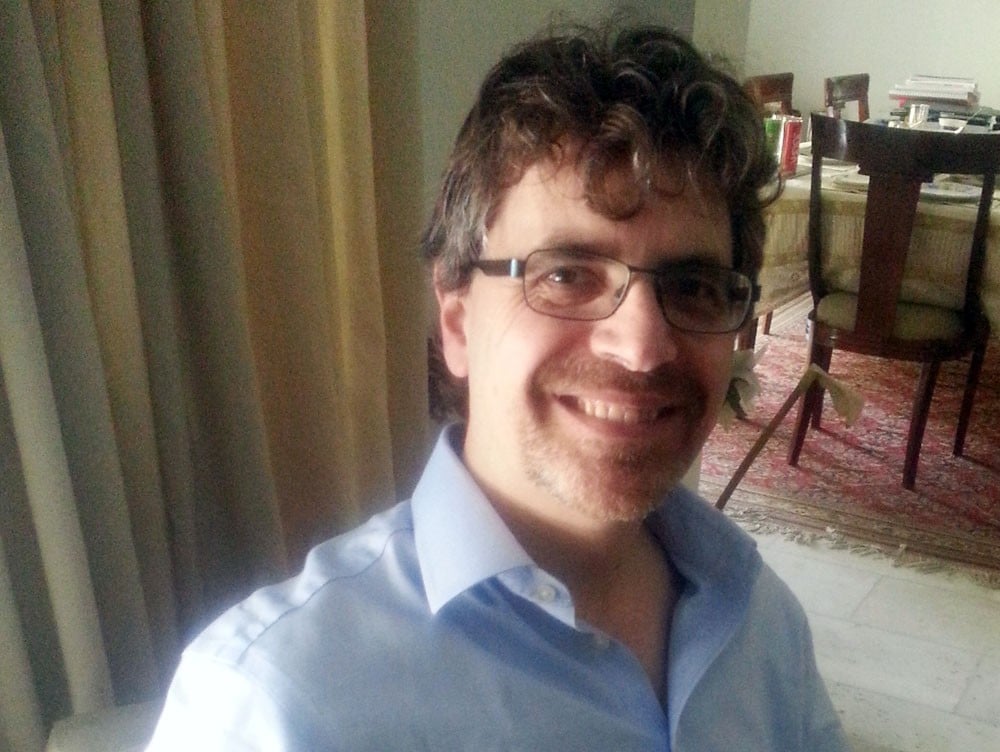
-- Joan-Pau Rubiés, Research Professor at Catalan Institution for Research and Advanced Studies, Barcelona, who was in Lahore recently in connection with his lectures on history in different educational institutions of the city

When 52-year-old Joan-Pau Rubiés, a senior professor of history in Barcelona, Spain, told his mother he was going to Pakistan, the latter’s instinctive response was: "Are you sure?"
To his credit, Rubiés stuck to his decision (read guns).
In Lahore recently, where he was due to deliver lectures on history in different educational institutions of the city, the professor told TNS that he thoroughly enjoyed his stay. "Obviously, my mother was concerned because of the security situation [in Pakistan] and the unending stories of bomb blasts that are reported in international media," he said, in an exclusive meet-up. His deliciously accented English was something one has often heard non-natives speak in.
"My experience has been amazing," he continued. "I had the privilege to be with friends here and enjoy Lahori hospitality of the highest order.
"I think Pakistan has a huge potential for tourism, if only the security issue is well taken care of. The government [of Pakistan] should find ways to invest money in its tourist sites. This shall generate revenue and also enhance the country’s image abroad."
Rubiés said that he was delighted to have come across so many "wonderful bookshops [around the city]. But if you visit the historical places such as the Lahore Fort or Jahangir’s Tomb, you also notice signs of neglect."
He expressed his disregard for the graffiti on the walls of some of the heritage buildings he had been to: "You don’t find this kind of stuff in Europe. No one would ever be allowed to do that."
He said, "I was shocked to find children playing in the premises of the [Jahangir’s] Tomb. I have full sympathy for the children who were there for lack of a playground in the area but this kind of activity must not be allowed at a historical site."
Currently Research Professor at Catalan Institution for Research and Advanced Studies, Rubiés has formerly taught International History at London School of Economics. He has also been the visiting lecturer at the École des Hautes Études, Paris.
Rubiés boasts a PhD in Early Modern Travel and Ethnology from the University of Cambridge. A widely published author, he is currently writing a monograph, titled ‘Europe’s New Worlds: Travel Writing and the Origins of the Enlightenment (1550-1750)’. His rich body of work sheds important light on cultural encounters in South Asia and how the Europeans’ perceived the Indo-Pak Subcontinent. Interestingly, the topic of his lectures in Lahore was "European Mughal interaction."
For Rubiés, who was visiting the city with his daughter, "Lahore is a lively place but the traffic is terrible.
"We liked the food. I had to watch my weight, though" he laughed.
During his week-long stay in the city, Joan-Pau Rubiés gave lectures at Government College University and Lahore University of Management Sciences, among other institutions. He said he had enjoyed interacting with the students, "I believe history should not be taught like a boring subject that is focused on memorising dates of important events etc. It’s a subject that tells us how we were and how we are, and also where we were and where we are now.
"With history you take the people back in the past and, in the process, help them develop a good perspective. It’s a very important part of educating a society, nationally, locally and globally. For example, in Pakistan, history should be taught in order to know why you are a country, what the Mughals meant for Pakistani people and what they did for the people of the region. History is essential to understanding why we must progress. It is about understanding questions on political and cultural realities of the past and getting sense of where we are now."
Rubiés also keenly took note of the ongoing debate about Orange Line Metro Train and a possible damage to historical sites that fall on its route. He was of the view that "modernisation is no justification; the matter could have been sorted out in a better way.
"In Barcelona, for instance, if they were revamping a road and they found Roman drawings along the path they would change the design and preserve history. I believe you could have done with an underground rail system."
He suggested that the government should seek professional advice before going ahead with the project.